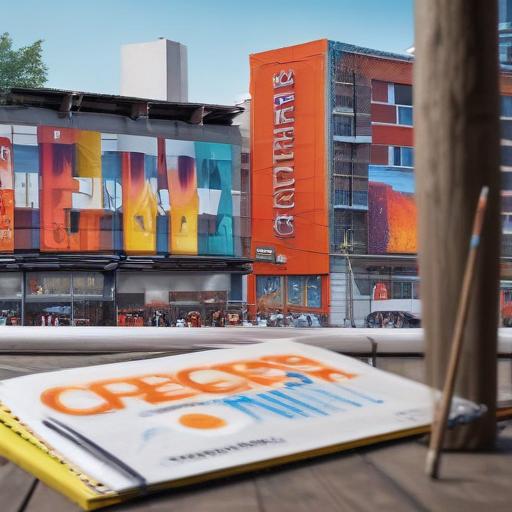Idris Elba, the award-winning actor, musician, and activist, was recently honored for his significant contributions to the arts and British culture. This tribute comes as part of the MOBO organization’s preparations for its 30th anniversary celebrations set for 2026.
As part of the “Paving the Way” award, which acknowledges cultural pioneers who positively influence their communities, Elba chose Barking and Dagenham College—where he pursued a BTEC in performing arts during the early 1990s—as the site for his commemorative paving stone.
The event took place in the Idris Elba Studio, a professional film and television facility named in his honor. During his speech, Elba reflected on his journey, emphasizing his commitment to addressing knife crime in the UK. He expressed, “Coming back to Barking & Dagenham College, the place where I first started to shape my creative voice, and being recognised by MOBO in this way is a full circle moment. To be honoured with a Paving the Way stone here, where my journey began, is deeply meaningful.”
Kanya King, CBE, founder and CEO of MOBO, highlighted that Elba exemplifies how dreams nurtured in local communities can have far-reaching impacts. She remarked, “Honouring Idris with this Paving the Way stone isn’t just about looking back — it’s about lighting the path forward for generations to come.”
The stone features an inspiring inscription: “Don’t get labelled — labels are for cans.” Elba’s recognition coincides with the launch of MOBO Help Musicians Amplified, a year-long career accelerator program aimed at supporting musicians of Black origin.
Natalie Davison, principal and chief executive of Barking and Dagenham College, expressed gratitude for Elba’s choice to lay his paving stone at the college, underscoring the importance of his ongoing support and the inspiration he provides to students.
This celebration of Elba’s achievements not only honors his past but also serves as a beacon of hope, encouraging future generations to explore their creative potential and giving back to their communities.
